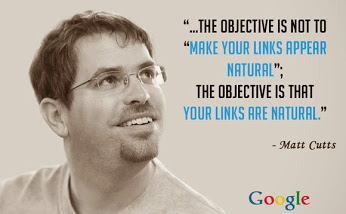Today I attended a fabulous webinar presented by Kate Toon of Kate Toon Copywriter and hosted by the Australian Businesswomen’s Network.
Kate covered a lot of valuable information in detail. Here is a quick list of my key take-aways.
1. Google’s aim is to help users find the best content.
2. What is SEO? Search Engine Optimisation is the process of enhancing your website to get the best possible results in the natural (organic) listings.
It’s now sometimes called Inbound Marketing.
3. SEO is only free if you do-it-yourself. If you do-it-yourself, you need to know what you’re doing.
4. Why should you care about SEO? Because your business will get more visibility, more traffic, better quality leads, improved conversion rates and a lower cost of sales. If your website comes up at the top of the Google search page, it is inferred that you are the best seller.
5. The top ranking websites get the majority of the traffic. After position 10 (end of the first page) you get pretty much no traffic. People prefer to search again, probably for a longer search term, that go to the second page of the search results.
6. Google’s ranking algorithm involves 100s of factors and is regularly updated. Even the SEO experts are guessing about the algorithm. Google doesn’t share information about their algorithm with anyone outside Google.
7. Get the On Page stuff right:
- Domain
- Good host
- SEO friendly platform (Use WordPress, people are constantly working to improve it)
- Install Yoast
- Install Google Analytics
- Install Google Webmaster Tools.
Note from Mel – these things are relatively easy for you to control, so if you’re building a new website, ask your web developer about them and get them sorted as part of your plan.
8. Content tips (on page SEO):
- You need to have a reasonable amount of text on a page eg at least 100 words.
- Don’t write content for the sake of it, think of something genuine and interesting to say.
- Be single minded. Pick a keyword phrase for each page, and don’t use it on multiple pages. Don’t let pages cannibalise each other.
- Keep adding fresh content eg a blog once a week.
- Keep the core pages updated and relevant.
- Name images related to what they are eg don’t call them “image 1758353”.
- Make Categories and Tags user friendly.
9. Title Tags are important (they are in the code of your page, you can add them via the Yoast WordPress plugin):
- Keep them to 60 to 70 characters long, including spaces.
- Unique and relevant.
- One keyword phrase per page.
- Important keywords at start.
10. Meta Descriptions are important too, although they don’t actually help your ranking:
- Keep them to 150 characters, including spaces.
- Make it unique and relevant.
- It’s an opportunity for a two line sales pitch.
11. Set up Google Authorship
Google Authorship allows you to associate your Google profile and image with content that you’ve written. Images stand out in the search results which draw the eye in.
12. Off Page SEO must be natural:
- Don’t buy links
- Don’t write a guest blog just to get a link
- You want links from other quality websites that were built naturally.
13. If you choose to DIY SEO, good results are achievable but will take hard work.
Want to learn more about SEO?
Check out the Web Developers’ WordPress SEO Check list and 66 Super Simple SEO Tips.
Kate is planning SEO courses in Sydney, Melbourne, Brisbane, Adelaide and Perth later this year, subject to demand.
You can register your interest in attending here.
About Melinda
Melinda aka Mel is a Google Partner, Google Ads & Consultant, Speaker and Trainer and co-owner of Click-Winning Content.
Mel provides results-driven services to organisations around the world and is committed to never using an acronym without explaining it first. She also likes greyhounds as pets, grand slam tennis, cracked pepper and Melbourne sunsets.
Please connect at the links below.

